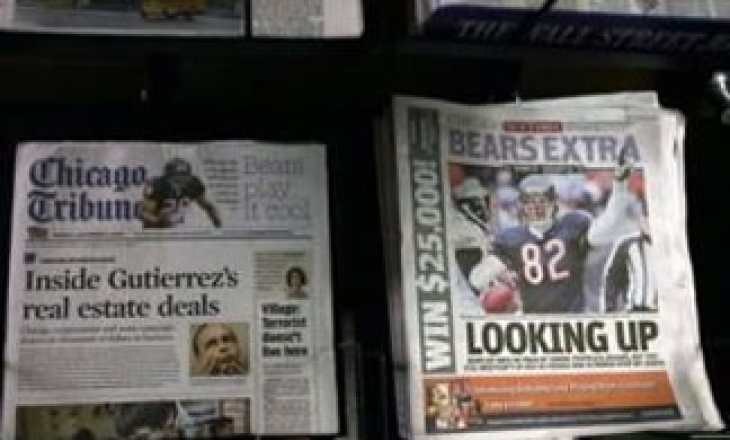The Tribune Co, owner of the Los Angeles Times, the Chicago Tribune and other US dailies, has filed for bankruptcy. The Chicago-based company said it was forced to seek bankruptcy protection Monday because of a sharp drop in revenue and a 13-billion-dollar debt load but has enough cash to sustain operations while it restructures, news reports said.
The Tribune's eight newspapers, 23 television stations and interactive properties will continue to operate during the reorganisation, the company stressed, adding that it "has sufficient cash to do so." "This restructuring focuses on our debt, not on our operations," said Tribune chairman and chief executive Sam Zell, the Chicago real-estate titan who led the 2007 private equity buyout of the Tribune Co.
"This restructuring will bring the level of our debt in line with current economic realities and will take pressure off our operations, so we can continue to work toward our vision of creating a sustainable, cutting-edge media company," he added.
Tribune is the second-largest US newspaper publisher in terms of revenue and the third in terms of circulation. Besides the Los Angeles Times, which has slashed its editorial staff from 1,200 in 2001 to 660 today, it owns the Chicago Tribune, Baltimore Sun, Orlando Sentinel, Hartford Courant and several other papers.
The company said in a statement that the Chicago Cubs baseball franchise and its iconic stadium, Wrigley Field, were not included in the Chapter 11 bankruptcy filing, which protects the company from its creditors while it restructures, and the Tribune would continue to try to find a buyer for the team.
The Tribune said that in the year since it went private it has repaid approximately one billion dollars of its senior credit facility and has been "rewriting the business model for its media assets." Zell said, "Factors beyond our control have created a perfect storm -- a precipitous decline in revenue and a tough economy coupled with a credit crisis that makes it extremely difficult to support our debt.
Most of the company's debt comes, the Associated Press said, from the complex deal engineered by Zell. The company's lending agreements require it to keep its debt at a certain point relative to its cash flow. Those deals became harder to meet as revenue declined because of the poor economy and competition from the Internet.










